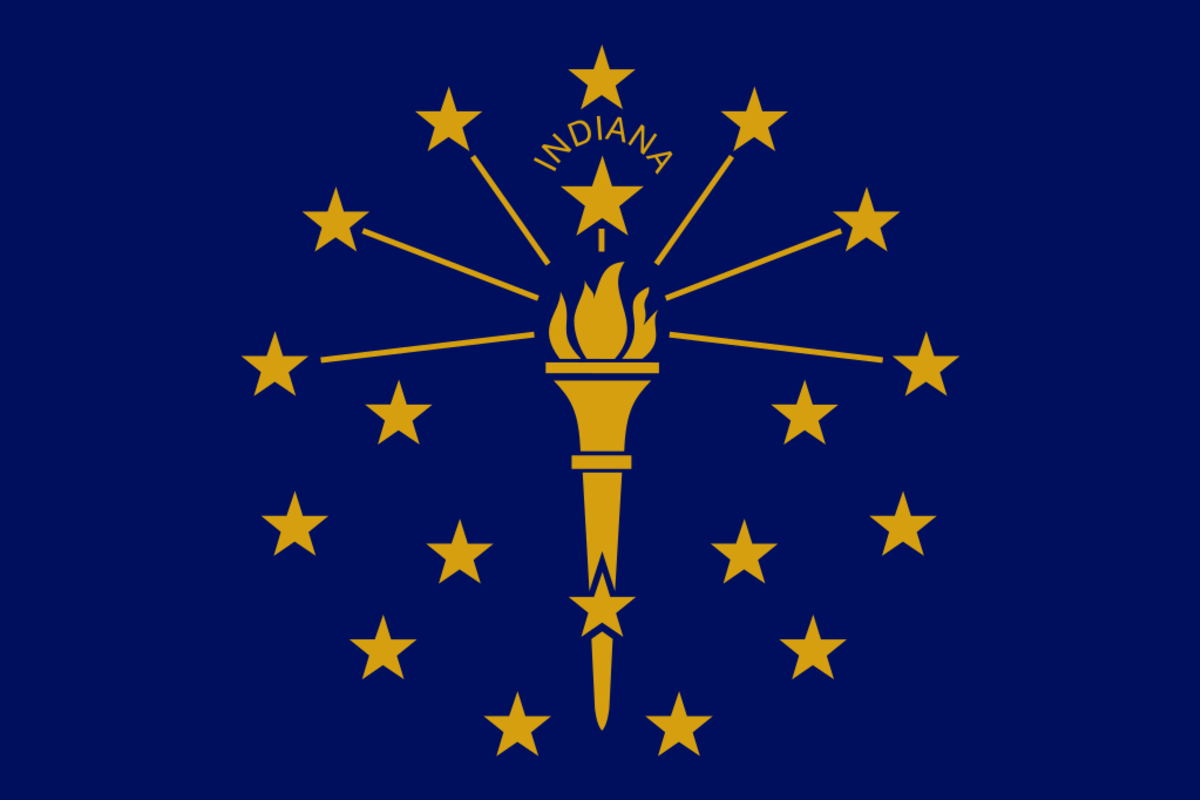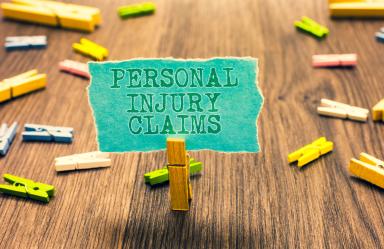Indiana Personal Injury Laws

In an effort to reduce injuries and fatalities throughout the state, the Indiana Criminal Justice Institute, in collaboration with the Indiana University Public Policy Institute, has been analyzing crash data to formulate strategies that assist with the policy-making process. Meanwhile, the Indiana Department of Labor also studies data related to workplace safety and health to determine programs and initiatives that need to be implemented.
Personal injury law primarily addresses cases in which a person is injured as a result of another party's recklessness, negligence, or intentional actions. Sometimes referred to as tort law, this legal section covers a broad range of topics, including workers' compensation, premises liability, animal bites, and automobile accidents.
If you have been injured, you may be able to recover compensation by filing a case. This article outlines the personal injury laws in Indiana, including the state’s at-fault rules, various types of personal injury cases, the amount of damages an injured plaintiff can seek in a claim, and legal resources available to Hoosiers.
Auto Accident Laws in Indiana
In Indiana, while nonfatal injury rates reached a 10-year low in 2020, traffic fatality rates increased, according to crash statistics supplied by the ICJI and the University Public Policy Institute. Alcohol-impaired incidents, in particular, accounted for 14% of all road fatalities in the state. The rates of crash participation among drivers aged 15 to 20 were higher than any other age group.
According to Indiana's state laws, any driver involved in an accident must contact the authorities as quickly as possible if the incident results in the injury or death of another person. They must do the same if they inflict damage to an unattended car or property if the owner cannot be located. An individual has the right to pursue a compensation claim based on the percentage of fault of all involved parties.
All motorists in the state are also required to carry liability car insurance policies. While there are various types of coverage that you can purchase, only the following are required by law:
$25,000 for bodily injury or death for one person
$50,000 for bodily injury or death of two or more persons in one accident (subject to the limit in subdivision)
$25,000 for injury or destruction of property in one accident
These are only the minimum requirements. You can opt to buy more policies depending on your needs and circumstances.
Indiana's Comparative Fault and Negligence Laws
In cases involving personal injury or death, as well as property damage, Indiana applies comparative fault and negligence rules. The degree of negligence or fault displayed by each party determines the amount awarded to the plaintiff in a claim or lawsuit.
This means that your financial compensation may be reduced depending on your percentage of fault in the case. Furthermore, the plaintiff may be barred if their culpability exceeds the fault of all other parties whose negligence proximately contributed to the plaintiff's losses. This means that a claimant is not eligible for compensation if their fault exceeds 50%.
In situations involving a single plaintiff and several defendants, the jury determines the plaintiff's, defendant's, and any non-party’s degree of fault. However, comparative fault is not applied in tort actions against government personnel or entities. It also does not apply to medical malpractice cases or actions filed against qualified healthcare practitioners.
Furthermore, comparative fault and negligence are not applicable to issues that occurred prior to January 1, 1985.
Indiana's Worker's Compensation Act
The Worker's Compensation Act, which governs compensation for personal injury or death while at work, is one of Indiana's personal injury state laws. Most businesses are required to have worker's compensation insurance, which gives employees eligibility for worker's compensation. If you are planning to file a worker's compensation case, it is important to remember that the burden of proof is on the employee.
There are three main benefits under the Worker's Compensation Act: medical care, wage replacement benefits, and monetary compensation. In terms of medical care, the employer chooses the doctor who will treat your injuries. If you believe you are not receiving proper medical care, you should file an Application for Adjustment of Claim with the Indiana Worker’s Compensation Board, since refusing the provided doctor without due process is grounds for having all benefits terminated.
Indiana is an employment-at-will state. With a few exceptions, this means that an employee can be fired at any time. In the event that you feel you have been wrongfully discharged by your employer because of workplace injuries, it is recommended that you hire a lawyer.
Indiana Product Liability Act
The Indiana Product Liability Act governs product liability claims in Indiana. It regulates all consumer claims against manufacturers for physical injuries caused by a product. Any person who sells or otherwise introduces a defective product into the market can be held liable. The consumer also generally belongs to the group of people that the seller should reasonably expect to be harmed by the defect. Another central principle of the law is that the product is supposed to reach the user or consumer in the same condition in which it was sold.
As in most personal injury matters, product liability cases have a two-year statute of limitations following the incident. Meanwhile, the statute of limitations for issues after the delivery of the product to the initial consumer or user is 10 years, except If the cause of action arises more than eight years after the initial delivery but less than 10 years afterward. In this case, the lawsuit may be filed at any time within two years.
Premises Liability Laws in Indiana
If you were injured on someone else's property in Indiana, you may be able to file a personal injury claim. If you intend to sue a property owner for injuries received while on their property, you must first demonstrate their liability. You must therefore show that the property owner owed you a duty to keep you safe, breached that duty, and injured you as a result.
Injured individuals in premises liability claims are generally categorized as invitees (someone who was permitted to go to the property for the owner's benefit), licensees (someone who was on the premises for his or her own reasons but had permission to be there), and trespassers (someone who was on the property without permission).
Each classification also corresponds to different duties of care that a property owner is expected to uphold. Invitees have the best chances to pursue a personal injury case. Meanwhile, property owners have the least amount of responsibility toward trespassers, as they just have to ensure that they do not intentionally injure the trespasser or increase the possibility of injury.
What Happens If The Person Who Trespassed On a Property Is a Child?
While a property owner does not have the duty to fix the dangerous conditions of their property to accommodate trespassers, there is an exception for children. A property owner can be held liable for a trespassing child's injuries or death if various conditions are met. These are:
The structure or condition of the premises is particularly dangerous to children
The danger surrounding the property is latent and unlikely to be understood by children
The property's condition that is being complained about is maintained or permitted by the owner
The property owner is aware of the hazardous condition of the structure, and of the potential for children to trespass and be injured
The structure or condition—regardless of the hazards they pose—appeals to children, such as trampolines, objects found in junkyards, and partially built houses
The injury sustained is a natural, probable, and foreseeable result of the property condition
Indiana's Dog Bite Liability Law
The Indiana Code has a section on dog bite liability. It states that a dog owner is accountable for injuries and property damage if their dog, without provocation, bites a person who is acting peacefully and without provocation.
Dog owners may also be charged with a crime. They commit a Class C misdemeanor if the dog enters a property other than its owner's property, and the owner fails to take reasonable steps to restrain the dog, resulting in the dog biting or attacking another person without provocation and causing physical injury. The charge can also be upgraded into a felony if the dog bite results in death.
There are some exceptions to liability for dog bites. A dog owner is not liable if the dog is owned by the United States, a United States agency, or a government body, and is assisting the owner or the owner's agent in military and law enforcement activities.
Indiana's Dram Shop Act
The Dram Shop Act, one of Indiana's most notable liquor laws, addresses the harm that drinking can do to individuals. It has been in effect since 1986 and allows for civil liability in circumstances where one person provides alcohol to another, who then subsequently causes injuries due to intoxication. Individuals or establishments can be sued even if they are not alcohol vendors, as the act covers delivering, selling, bartering, or exchanging alcohol. Hosts or servers of establishments that serve alcohol may also be held liable.
A plaintiff may file a claim for damages against the person who supplied the alcohol to the person who caused the injuries due to the latter’s impairment or intoxication. Two points must be applied. One is if the individual who furnished alcohol had "actual knowledge" that the person who was offered alcohol was clearly drunk at the time the alcoholic beverage was given. The other is when the intoxication of the drunk person is the proximate cause of the injury, damage, or death alleged in the complaint.
A plaintiff may be the direct victim of the alcohol-impaired party, or the victim's dependents, heirs, and personal representatives.
What Types of Insurance Do Businesses in Indiana Need?
Worker’s compensation is required by Indiana for businesses to legally operate. Worker’s compensation is primarily responsible for occupational injuries, and all Indiana employers must obtain workers' compensation from a private insurance company. In the event that an employee suffers from a workplace injury that causes them to miss at least one day of work, the employer must electronically file an Indiana Worker's Compensation First Report of Employee Injury or Illness.
Another type of insurance that is important for businesses is commercial general liability insurance, which is generally bought after the formation of a business. While it is not required by law, it may be required in other industries.
If you rent or lease vehicles for your business, it is recommended that you purchase a commercial auto insurance policy. This primarily covers costs incurred as a result of a car accident that was caused by you or an employee. You can apply for the Indiana Auto Insurance Plan if you were turned down by an insurance company.
How Much Can Someone Sue For an Injury in Indiana?
The amount of damages a plaintiff can receive from the person at fault is determined by several criteria, including the severity of the accident. There is no cap on economic and non-economic damages for personal injury claims unless the lawsuit is against a government entity, in which case the cap is $700,000.
Damage caps are mostly applied in cases where large sums of money are involved. For example, the maximum award for punitive damages is three times the amount of compensatory damages granted in the action, or $50,000, whichever is greater. If the punitive damages exceed the damages cap, the court will reduce the award.
There is also a damages cap for medical malpractice claims, which depends on the date the malpractice happened.
Taxability of Damages
Economic and non-economic damages from personal injuries are not regarded as income under federal law and hence are not taxable. However, punitive damages and awards for emotional distress are subject to taxation. If you received both compensatory and punitive damages, only the punitive damages award will be taxed.
The Statute of Limitations For Personal Injury in Indiana
Indiana generally has a two-year statute of limitations for personal injury victims to sue the at-fault party. The clock starts ticking on the date the accident occurs. Failure to file a claim on time may result in the loss of your right to have your case considered in court.
Meanwhile, the statute of limitations for personal injury cases involving sexual abuse of a child is seven years following the date of abuse or four years after the victim ceases to be dependent on the perpetrator alleged to have conducted the sexual abuse.
Legal Resources for Injured Indiana Residents
Indiana State Bar Association's Locate Your Lawyer
Locate Your Lawyer is an online directory created by the Indiana State Bar Association with RELIAGUIDE. Personal injury victims can find suitable attorneys based on their practice area. The website also includes an advanced search tool, which allows visitors to refine their searches by including information such as languages used, pricing, availability for virtual visits, and additional states of admission.
Indiana Free Legal Answers
Indiana Free Legal Answers, managed by the Indiana Bar Foundation, is a virtual legal advice clinic where qualifying users can post civil legal questions for free. Pro bono attorneys will respond to their inquiries. Health and disability, civil rights, and financial regulations are all significant issues for personal injury victims. The website was created in partnership with the American Bar Association.
Indiana Legal Services, Inc.
Founded in 1966, Indiana Legal Services, Inc. is a nonprofit law firm that provides free legal services to eligible low-income residents of Indiana. The ILS provides a detailed pamphlet about Small Claims Courts for personal injury plaintiffs seeking damages of less than $6,000. Some of the information given is on how to file a lawsuit, where to sue, what to do during a hearing, and what happens if you win the case.
Worker's Compensation Board of Indiana
The Indiana State Government established the Worker's Compensation Board of Indiana to provide formal adjudication and informal dispute resolution services to injured employees and employers. The website has state forms related to worker's compensation matters. It also features a FAQ section that addresses issues such as salary replacement benefits, job injuries, and employment termination. It also collects statistical data on workplace injuries in Indiana.
Indiana Department of Insurance
The Indiana Department of Insurance is responsible for enforcing Indiana's insurance laws. Its website offers information and resources on insurance products that cover personal injuries, including workers' compensation, small business insurance, property insurance, and auto insurance. It also has a Medical Malpractice Division that controls the qualification of healthcare professionals in Indiana's Medical Malpractice Act's Patient's Compensation Fund.
Expertise.com StaffAuthor
Step into the world of Expertise.com, your go-to hub for credible insights. We don't take accuracy lightly around here. Our squad of expert reviewers, each a maestro in their field, has given the green light to every single article you'll find. From rigorous fact-checking to meticulous evaluations of service providers, we've got it all covered. So feel free to dive in and explore. The information you'll uncover has been stamped with the seal of approval by our top-notch experts.




